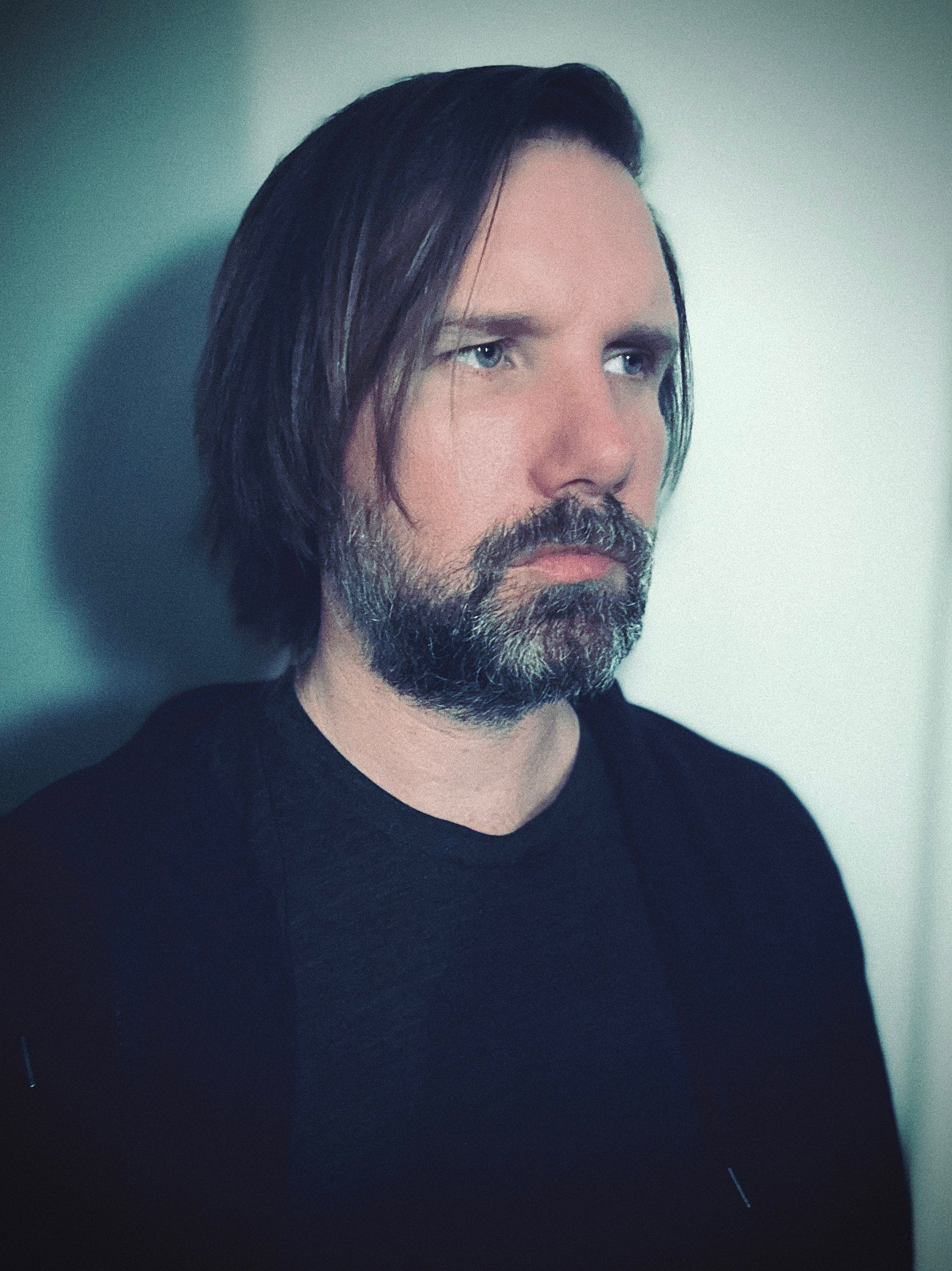Click Image to Download!
“This album started as a title. There were no songs yet, just a few words that seemed to sum up a lot of things for me: everyone is dead except us. And I knew it would be the title of my next Wolfie’s Just Fine album. That was about 4 years ago,” says Jon Lajoie. “What I could not have anticipated was that in May of 2021, my father would be diagnosed with a terminal illness, and that over the next six months we would slowly, lovingly, painfully, beautifully, and heartbreakingly say our goodbyes. He passed away on January 4th, 2022.”
Known for his satirical albums like You Want Some of This and I Kill People, for his role as “Taco” on the comedy series The League, and as the writer behind some of the catchiest original songs in film and television, in 2016 Lajoie surprised his fans with thoughtful, introspective music made under the moniker Wolfie’s Just Fine. On his latest album, Everyone is Dead Except Us, Lajoie turns the glorious, undeniable, and devastating territory of human mortality and the pain of loss and grief, into something to examine and unpack in the span of four-minute-long deeply felt, emotional songs.
Following the death of his father, Lajoie set out to re-record a song he had written for him nearly two decades prior, “Song for Dad,” to release as a Father’s Day tribute. “It wasn’t a plan to record an album. I thought maybe, at most, if I find the right producer, I could turn it into an EP,” Lajoie explains. A few months later, not only had he found the right producer and arranger in Jordan Lehning (Caitlin Rose, Andrew Combs), but when he showed up that spring in Nashville to record, he had not two or three songs, but ten.
After the first of two tracking sessions at Jordan’s studio in Nashville, Lajoie returned to his home in LA, and they kept working remotely, deciding to let the album unfurl itself in its own time. “We had no real deadline,” says Lajoie, crediting the space, patience, and constant feedback Lehning provided him as he further experimented with each track at home in Los Angeles. “I would sit in my studio basically every day and go, ‘Okay, how do we make this song come alive?’ It was a lot of trial and error.” It was a new experience for Lajoie, who had been used to recording and releasing an album in a brief and contained timeline. “The back and forth like this over a long period of time just wasn't available to me on previous records. I don’t know that I knew that it could be possible or fruitful. And Jordan wasn’t just patient and generous with his time, he is such a brilliant producer, arranger, and musician that he really was the perfect collaborator for this album.” After months of laboring away remotely, Lajoie returned to Nashville in the fall to complete the record. The album was subsequently mixed and mastered by D. James Goodwin (Kevin Morby, Bonnie Light Horsemen).
What resulted is Everyone is Dead Except Us, out June 16th on Normal Guy Records, an album in the key of mortality, one that tends more towards wry observations than melodrama. Across its ten tracks, Lajoie treats the brief nature of life as a stone to be turned over and examined in the palm of his hand, paying careful attention to the cracks and jagged edges of it. Mortality isn’t just about the one-time event of death; it’s both the too long and too short journey up until then that’s filled with losses along the way. The loss of youth, the loss of loved ones, the loss of who you are in order to become who you will be—they’re all present in Lajoie’s mind as he stands on the precipice of middle age, a transition made more complicated by the loss of his father.
Lajoie’s new version of “Song For Dad” brims with moving vulnerability, a powerful paean for the man who raised him made more poignant by its shades of grief. And on the title track, “Everyone is Dead Except Us,” Lajoie wills lightness into being, turning the seemingly dark phrase into a statement of gratitude. If all of human existence is split into those dead and those not-yet-dead, but will be someday, better to appreciate the sheer luck you have to be the latter while you still can.
More, core childhood memories that could read as jokes hit like a gut punch. On “Mortal Kombat 2,” Lajoie sings triumphantly about a pivotal injection of confidence instilled in him as a child via an arcade game. “I never felt special, I was a pretty forgettable kid, mediocre at school, sports… I never really stood out in any way. And it sounds silly, but Mortal Kombat 2 somehow empowered me,” he explains. “It was the first time I ever felt good at something.” Similarly, on “Hulk Hogan,” Lajoie recalls a simple moment of euphoria: “The joy I felt when I saw Hulk Hogan slam Andre the Giant as a seven-year-old kid, I don’t know that that is accessible to me anymore. It was such a simple moment—my brother and I watching a couple of very large men in tights wrestle each other on TV—it seems silly in hindsight. But as a seven-year-old, I remember feeling like the world had defeated every single villain and everything was gonna be okay for the rest of eternity because Hulk Hogan slammed Andre the Giant and beat him.”
Lajoie is never maudlin, even when he’s being “terribly unfunny.” There’s an undercurrent of levity that touches so much of humanity within his songs. The things that mean so much to us, the things that helped us understand who we are or what we’re good at, the things that once brought us a feeling of indescribable joy, aren’t always “important” things. They’re pop culture relics of our past, video games (“Mortal Kombat 2”) and action movies (“Staying With the Bomb”) and WWE on the TV at our grandparents’ house (“Hulk Hogan”), which makes them admittedly a little funny in hindsight. But Lajoie treats the seemingly unserious with the utmost respect and dignity, never allowing a song to sound like an outright joke—each songs’ arrangements call to mind tunes from the likes of Aimee Mann or Nick Cave—all while acknowledging that our memories are fallible and subject to embellishment. It’s not funny, except that it is. It’s serious, except that it isn’t. It’s tearful, but it’s also the laughter that comes after the heaving sobs. It’s joyful—an embracement of the rush of impossibly strong feelings we were once able to tap into so easily. And it’s heartbreaking—an elegy to a time of purity of spirit we’ll never possess again. And isn’t that duality the very nature of being a person? Well, the alive kind at least.
In addition to finding an audience as a comedian and actor, Lajoie has also written numerous songs for film and television, with credits including original songs for The League, The Lego Movie 2: The Second Part, and The Afterparty. His first album as Wolfie’s Just Fine, I Remembered but Then I Forgot, was praised as “thoughtful and musically soulful” (Billboard) and “a fine collection of neo-folk” (A.V. Club), while PopMatters singled out Lajoie’s specialty of writing songs through the perspectives of film characters to arrive at “genuine and heartfelt catharsis.” His 2018 follow-up EP, Perfection, Nevada, (Produced by Bright Eyes’s Mike Mogis) further established Lajoie’s unique point of view, with Bloody Disgusting noting that, “Lajoie sure does have a way of bringing beauty and fresh perspective…[that] hits on something we can probably all relate to: sympathy for the monster.” On his latest, Everyone Is Dead Except Us, Lajoie leans into the sweet spot of Wolfie’s Just Fine, with songs that evoke nostalgic remembrances of pop culture relics and coming of age touchstones alongside piercing insights about what it means to be alive.








